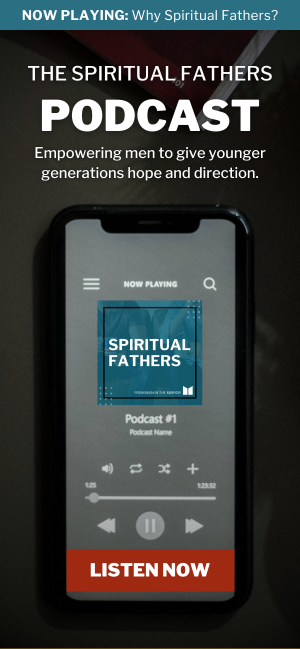The Power of a Personal Invite
Get ready. You are about to read a foolproof “marketing plan” to get the men of your church to come to your next event.
Ready?
Here it is: First, create a four-color flyer for your event with cutting edge graphics and hand it out to every man. Then make an animated PowerPoint presentation to show on the screen before every service starting two months before the event. You’ll need to run some radio advertisements on the local Christian stations.
Next, go out and purchase at least one billboard on every major artery leading to your church to advertise your event. Go to the local airfield and pay for a skywriter so that the week before your event men can look up and see “Men’s BBQ Next Friday” written in the sky. Finally, slip your pastor a few extra bucks to announce it from the pulpit. Everybody knows that if the pastor tells men what to do, they’ll do it.
Okay, so by now you’ve realized that the plan above is not only a little expensive, but probably not effective either. It’s just a formula for getting the guys to come who were going to attend anyway.
If you want new men to come, you must add one strategy to your promotions: personal invitations. All of your flyers, announcements, and PowerPoint slides accomplish one thing: they make it more likely that a man will say “yes” when someone asks him to go. It makes sense, doesn’t it? Think about how most men come to Christ: most don’t drive down the street, see one of those “God billboards” and go, “Wow. I need to ask Jesus Christ to be my Lord and Savior.” No, someone spent time explaining the gospel to them, and then asked them if they would like to accept Christ.
According to surveys by Religion in American Life, only 2% or 3% of people attended church because of advertising, while 85% went after being invited by a friend or relative. Men need to be invited— personally. They will come to something with a friend they would never go to alone.
A Tale of Two Events
David is on the leadership team at his church. They decided to host several events to build community among their men. The first was a father and child activity day one Saturday afternoon. They put announcements in the bulletin, sent emails, even had the pastor mention it from the front. And when Saturday came, the leadership team gathered to greet and serve the men and children coming. They waited. They waited some more. In the end, besides themselves, exactly nobody—zero men—came. (David was thinking about applying for The Guinness Book of World Records for least successful church men’s event.)
The next event was scheduled to be a bowling night in January. Though a bit dispirited, they decided to go through with their plan. One of the leaders had suggested making the bowling night a competition. They recruited 11 ‘captains’ who were each responsible for inviting four other men to be on their team. The night of the event, 54 men showed up – the most they had ever had for this type of men’s activity. (They gave bonus pins for team members who did not attend church regularly—and had 11 unchurched men at the event.)
Why did it work? They only had to sign up 11 men for the event, then those 11 went out and personally recruited the other 43.
Just One Invite? That’s Easy.
We have found that advertising is a non-starter. Does that mean you can cancel all promotions, walk around once on Sunday, shake a man’s hand, say, “We’re having a bowling night. You should come,” and be done with it? Of course not. These things are all building up into an exciting opportunity for men to be a part of. Art Groomes, Training Specialist for LifeWay, said, “Statistics indicate it can take up to 20 touches before someone becomes open to visiting Sunday School or a worship service.”
The first time you mention something, it likely will not be the only time you have to tell him.
Patrick Morley met three men at a gym once and struck up a conversation. Turns out they were Christians looking to grow and he invited them to the Man in the Mirror Bible Study in Winter Park, FL. They seemed very interested and he gave them the details.
As they left they said, “We’ll see you there.”
Patrick says that he’s heard this plenty of times before, so he wasn’t holding his breath, but then a few days later he saw one of the men outside the gym. As they talked, Patrick said, “Hope to see you at the Bible study.”
The man turned to Pat and said, “You know. I don’t think it was by accident we bumped into each other this morning. I think I need to come.” But then he surprised Patrick by asking, “When did you say that you meet again?”
That’s why we stress the importance of personal invitations. Almost no one will come to your event simply because they saw it in the bulletin, got a flyer in the mail, or heard about it on the radio. It might take a few times, but men come when they are personally invited to come.
The Big Idea: If you want men to come to anything your church is doing, you have to personally invite them.
♦♦♦









If we’re going to follow an example, why not follow the best, Jesus. He personally invited His disciples to follow Him, and then kept in close and personal contact with each. Men, down deep, want to know that they are important to another man.